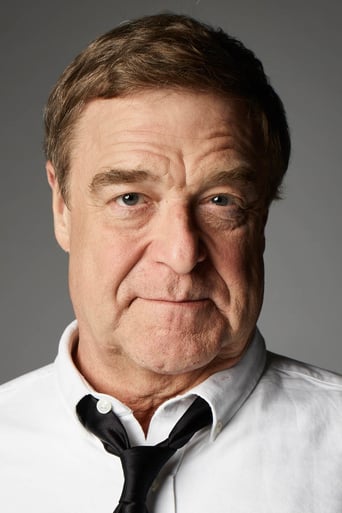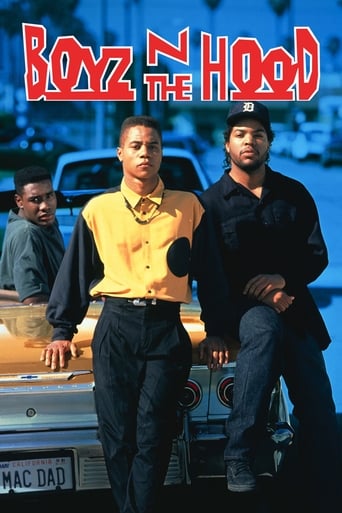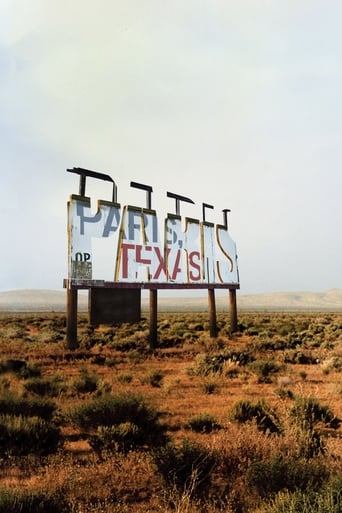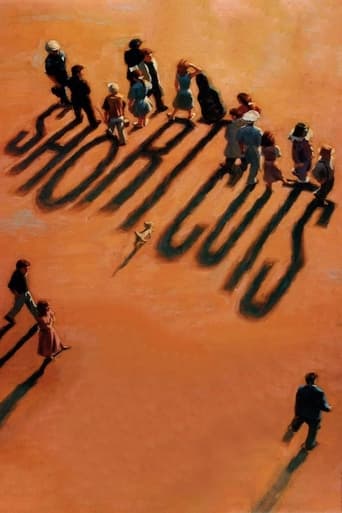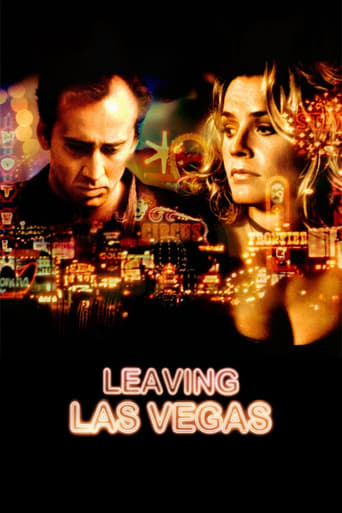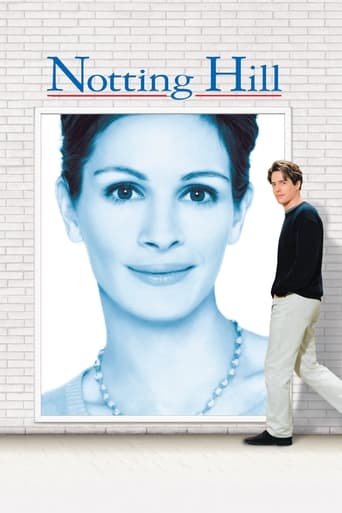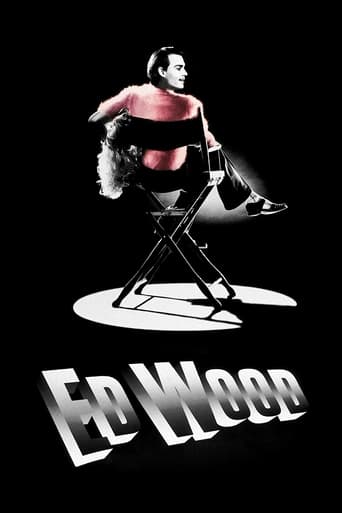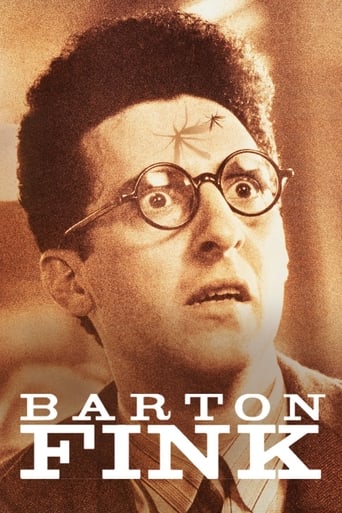
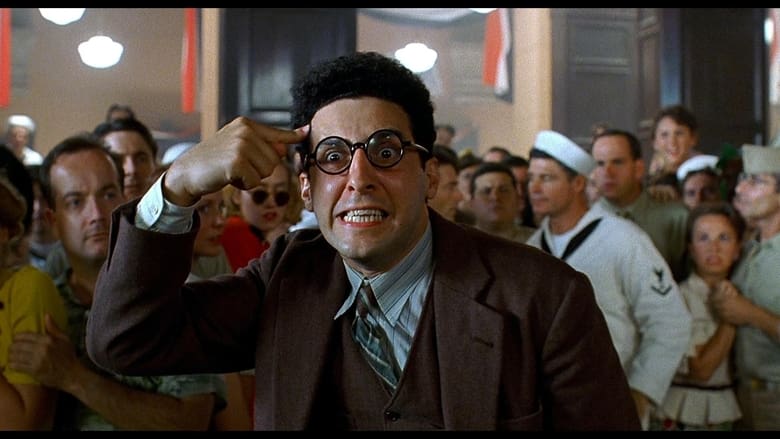
Barton Fink (1991)
A renowned New York playwright is enticed to California to write for the movies and discovers the hellish truth of Hollywood.
Watch Trailer
Cast


Similar titles
Reviews
There is a very surreal feeling to this film so its not easy to explain what its really about. It has really good dialogue, acting and a unique story progression. Barton Fink becomes a Hollywood writer after his success in theatre but his first job writing a wrestling movie will be a weird adventure with weird people.
This is probably one of the most hermetic, personal and autobiographical films that the Coen Brothers have ever presented. Many people find it boring. I understand and I can even agree but I also believe that I understand, at least in part, what the directors wanted to tell us.There is a lot of common between the Coen's and Barton Fink, an idealistic intellectual Jew who idolizes ordinary people and, therefore, cannot see how stupid they are (the Coen's can). Suddenly, Fink is hired to write the script for a mediocre B movie about pugilism. The kind of movie ordinary people pay to see even today. Of course the script, by an intellectual full of ideals, would never be useful in these kind of film because Fink didn't know how to adapt himself to the task. He is far above ordinary men to realize what they want to see and that is why he would never please them. This is not just with Fink: today, the majority of people don't like theatre or art because it has become too elitist and intellectual to appeal the masses (taking theatre and the arts as an example, we can still think of classical music or even cinema).From this point of view, this film is deeply intelligent: it starts out as a very intellectual and hermetic film which will make the most idiotic audience flee from the theater and, then, it gradually becomes more "normal" through action and violence. Even so, it always contains some intellectuality, through elements and moments that the film never bother to explain (the importance and content of the box that Fink receives near the end, for example, a thing that left me confused and curious). Its as if the film, even making an effort to adapt itself, never ceased to be what it really is. In the midst of it all, I enjoyed the work of Turturro, which gave life to the protagonist. He knew how to make his character naive and dreamy. Fink sometimes seems so oblivious to the world around him that he seems to be stoned. What counts for him is the world he has inside his head. Very interesting, but difficult to swallow for commercial audiences.
Ever since the day those brave pioneers came out west from the east coast with dreams of sunshine and perfect weather conditions for making movies, that ideal known as Hollywood (not the place, but the state of mind) has dashed many hopes and dreams. Whether it be for the phoniness of the people, lack of artistic respect of how movies are made and the absence of creative aspects has turned off many artists. Writers have exposed the shady world of filmmaking, both in California and abroad, and when Hollywood does it and gets away with it, it is practically a work of genius.Praised playwright John Turturro finds that Broadway success make him wanted buy the biggest movie studio in Hollywood and when he arrives, he's fine he has been given a story he has no passion about. Struggling to find ideas in a dilapidated Beach Hotel, he meets wacky neighbor John Goodman (who turns out to be quite off the beam), finds a hopeful mentor in alcoholic author John Mahoney and falls in love with Mahoney's younger mistress/secretary, Judy Davis. Slowly but surely, Turturo finds out how Hollywood works behind the scenes, hiding scandal, building and breaking careers (and hearts), and ultimately how profit is more important than artistic integrity. Oh, and don't forget about the mysterious box that Goodman leaves behind.An excellent cast walks around a very avant garde set (which got a well deserved Oscar nomination) as if they were in an ongoing dream state. The hallway set alone in the hotel is worthy of that honor. Oscar nominated Michael Lerner plays the flamboyant but crude studio head, with Tony Shalhoub outrageous as well as the talent scout who becomes his adviser. Steve Buscemi also steals scenes as the hotel clerk dressed in bellboy attire. While Lerner is excellent, I would have preferred the Oscar nomination go to Goodman, then very successful on T.V.'s "Roseanne". For those who have gone to Hollywood hoping for some sort of success in film, whether it be in front of the camera or behind the scenes, it is a revelation especially if you have decided want you got there that it's not worth the destruction of your ethics. I am one of those who thought of a career as a film editor but unwilling to compromise my personal standards decided to remain a fan of the movies from afar. Like "Sunset Boulevard", "The Bad and the Beautiful", "The Big Knife" and others, this doesn't ask for apologies for biting the hand that feeds it, and in the end, got applause for taking a chunk out. It might not be for all tastes (as are most Cohen films), but artists should totally check it out.
In my eyes, the quintessential Coen brothers film and one of my three personal favorite films of all time. This movie makes me think about or notice something new every time I watch it, a rare feat for a film that isn't just pretentious drivel disguised as genius. There is so many ways to interpret the bizarre events here that it leaves you no choice BUT to think. I can still remember the first time I saw it when John Goodman steps out through the burning elevator and produces a shotgun as the halls burst into flames. The image has been etched into my brain ever since, mostly because it comes out of nowhere. Most filmmakers would never dare go for something like that, but I have eternal respect to the Coens for not only doing it, but for pulling it off marvelously. Apart from amazing visuals, I adore Bartons fruitless quest to discover the inner workings of the common man, while ignoring every single opportunity around him to learn more. As Charlie tries to tell him stories about his misadventures and his struggles, Barton cuts him off to talk about himself. Because he doesn't actually care about others as much as he believes he does. Or rather, cant empathize with others as he believes he can. W.P. Mayhew suffers from alcoholism to the point where he will puke his guts out in public and then seconds later pull out a flask and continue drinking. That's some human suffering right there, but Barton instead only see's his idol as a disappointment. W.P's long suffering mistress defends him, and instead of trying to understand why she would, he simply berates her (which is fair I suppose, but that line of Barton's at the park - "What don't I understand?" - that remains unanswered always sticks out to me) Not to mention him berating the Sailors shipping out to fight a war while he sits in his room and thinks about how everything's so unfair for him. I could talk about this movie forever, but I'll just leave it with make your own interpretations of what the hell everything means. And as for those Coen Brothers, I think we'll be hearing from those kids. And I don't mean just a postcard.



